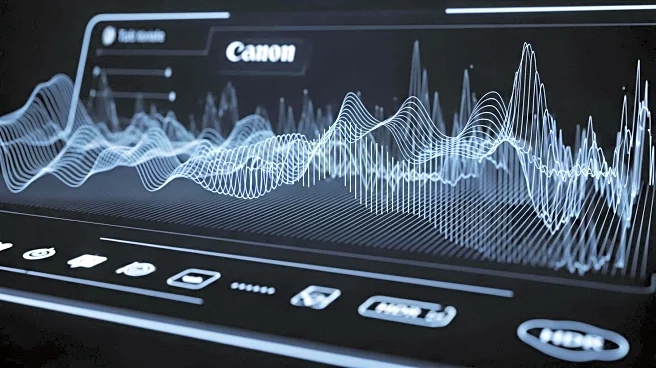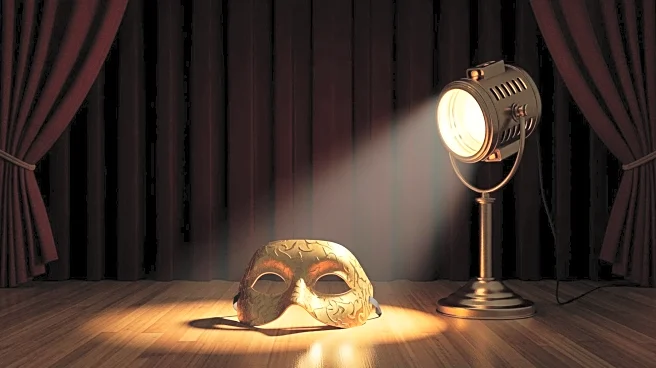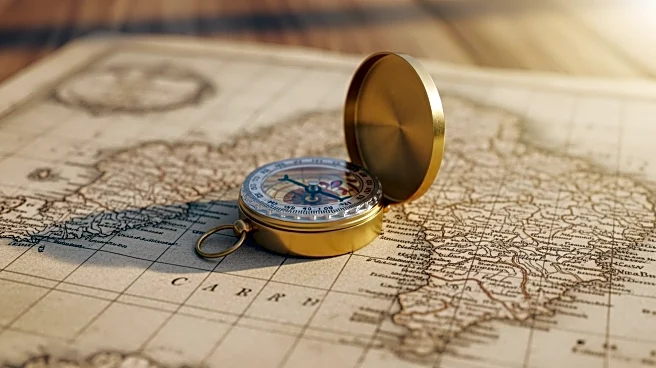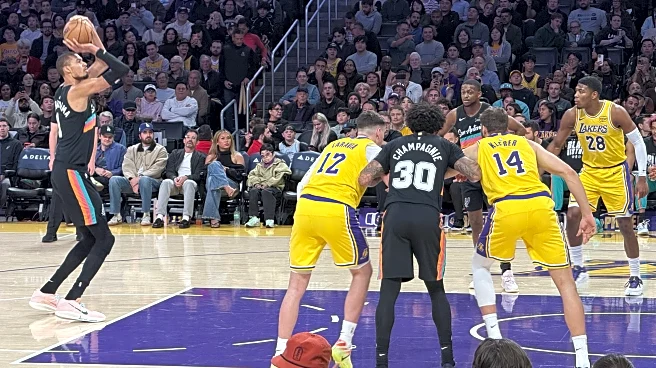What's Happening?
OpenAI has launched Sora 2, a new AI tool that allows users to create videos featuring themselves or others who have given permission. This tool, along with Meta's 'Vibes', represents a significant advancement in AI-generated video content, enabling non-experts to produce sophisticated and imaginative videos. These tools are part of a growing trend in AI technology that blurs the line between human and AI-generated content. Sora 2, which is currently available by invitation, has quickly become popular, topping Apple's app store. The tool allows for the creation of videos using simple prompts, offering a creative outlet and a new era for social media. However, the rise of AI-generated videos has also sparked concerns about the potential for low-quality content and deepfakes, which could be mistaken for real footage.
Why It's Important?
The introduction of AI tools like Sora 2 and Vibes is poised to revolutionize the entertainment industry and online content creation. These tools democratize video production, allowing anyone with internet access to create content, which could lead to a surge in user-generated videos. However, this also raises concerns about the quality and authenticity of content, as well as potential copyright infringements. The Motion Pictures Association has already expressed concerns about the proliferation of videos that infringe on copyrighted material. As AI-generated content becomes more prevalent, industries will need to establish guidelines to protect intellectual property and ensure the integrity of content. The shift towards AI-generated videos could disrupt traditional media industries, prompting calls for regulatory measures to safeguard creative professions.
What's Next?
As AI video tools continue to evolve, major tech companies like OpenAI and Meta are expected to explore monetization strategies, potentially through advertisements and brand placements. The entertainment industry may push for stricter regulations to protect against copyright infringement and ensure fair compensation for creators. Additionally, there may be increased demand for tools that help users distinguish between AI-generated and human-made content. The ongoing development of AI technology will likely lead to further innovations, but also necessitate discussions around ethical use and the impact on creative industries.
Beyond the Headlines
The rise of AI-generated videos presents ethical and legal challenges, particularly concerning the authenticity of content and the potential for misuse. As these tools become more accessible, there is a risk of spreading misinformation through deepfakes and other deceptive content. The industry will need to address these challenges by implementing measures to verify the provenance of AI-generated videos and prevent harmful content. Furthermore, the cultural impact of AI in creative fields raises questions about the role of human creativity and the value of human-centered art in an increasingly automated world.











